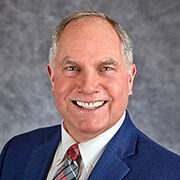July, 2020
Good morning,
A quarter-century ago, Hollywood celebrated its latest blockbuster—Braveheart. The movie—directed by and starring Mel Gibson—told the life story of 13th century Scottish warrior William Wallace and his attempt to free Scotland from English tyranny.
Braveheart was nominated for ten Academy Awards, winning five—including Best Picture and Best Director. Braveheart grossed a whopping $210 million worldwide.
Without letting the historical facts get in the way (The Times listed Braveheart as the second most historically inaccurate movie of all time), Braveheart brought to life the First War of Scottish Independence against King Edward I of England.
The film's climax came as the captured Wallace appeared before an English magistrate to face charges of high treason against the Crown. The punishment was public torture and then beheading. While Wallace endured the barbaric tortures, the Scotsman's valor caused the on-looking, cringing crowd to cry out for mercy.
The magistrate, in an effort to appease the masses, offered Wallace one final chance. "Just utter the word 'Mercy!' and I'll grant you a quick death."
Wallace instead shouted, "FREEDOM!"
Within days of the movie's premier, the American lexicon listed braveheart as its word of the year. The endearing label became a badge of honor, bestowed on those who courageously champion a selfless cause with a willingness to die for it.
As pastors, we like to think we're all bravehearts—single-minded soldiers for the cause of Christ, marching into the pit of hell to proclaim the gospel.
However, in our highly subjective and politicized culture, it's become increasingly unpopular to toe-the-line on biblical or righteous standards … even though God's mandate has never changed: "Preach the word. Be prepared in season and out of season. Correct, rebuke and encourage—with great patience and careful instruction."
And therein lies the rub. What does a braveheart pastor look like or sound like today? At what point do we qualify as courageous? Are we willing to die for what we believe and teach?
Instantly, Gideon comes to mind. When God first visited the soon-to-be braveheart, Gideon used his go-to excuse: "I'm not qualified—my family is the least in Manasseh, and I am the youngest in my father's house."
To understand Gideon's argument, we need to understand what Manasseh stood for.
The twelve tribes of Israel descended from Jacob's twelve sons. Each son's name told a story of its own. For example:
- Ephraim's name meant Fruitfulness.
- Gad's name meant Good favor.
- Reuben's name meant Ah, a boy!
- Judah's name meant Praise.
- Asher's name meant Happy am I.
- Issachar's name meant I am rewarded.
- Benjamin's name meant Son of my right arm.
- However, Manasseh's name meant … Forgettable!
In other words, Gideon was dismissing himself because of his family's image. "You can't want me, God! I'm of the Manasseh tribe, you know, the people who are forgettable. In addition, my family is the lowest of the forgettables. To make matters worse, I'm the youngest in my forgettable family. In other words, I'm the most forgettable of all. You can't possibly want me!"
It may have been solid reasoning on Gideon's part, but God wasn't looking for reasoning. He was looking for a braveheart.
The Lord responded to Gideon's well-thought-out disqualification with the simple line, "If' I'm sending you, I'll be with you." The issue wasn't about Gideon's qualifications; rather it was about the qualifications of the One who was sending him.
The apostle Paul, on the other hand, was eminently qualified. However, his "thorn in the flesh" was a constant reminder of his limitations. That's when God said, "My power shows up best in weak people." (TLB)
As a result, that 'thorn' became Paul's boasting point.
Leadership, then and now, is a gutsy role. However, God's promise is still the same; "If I've sent you, I will be with you."
Blessings, braveheart,
| 


























































No comments:
Post a Comment